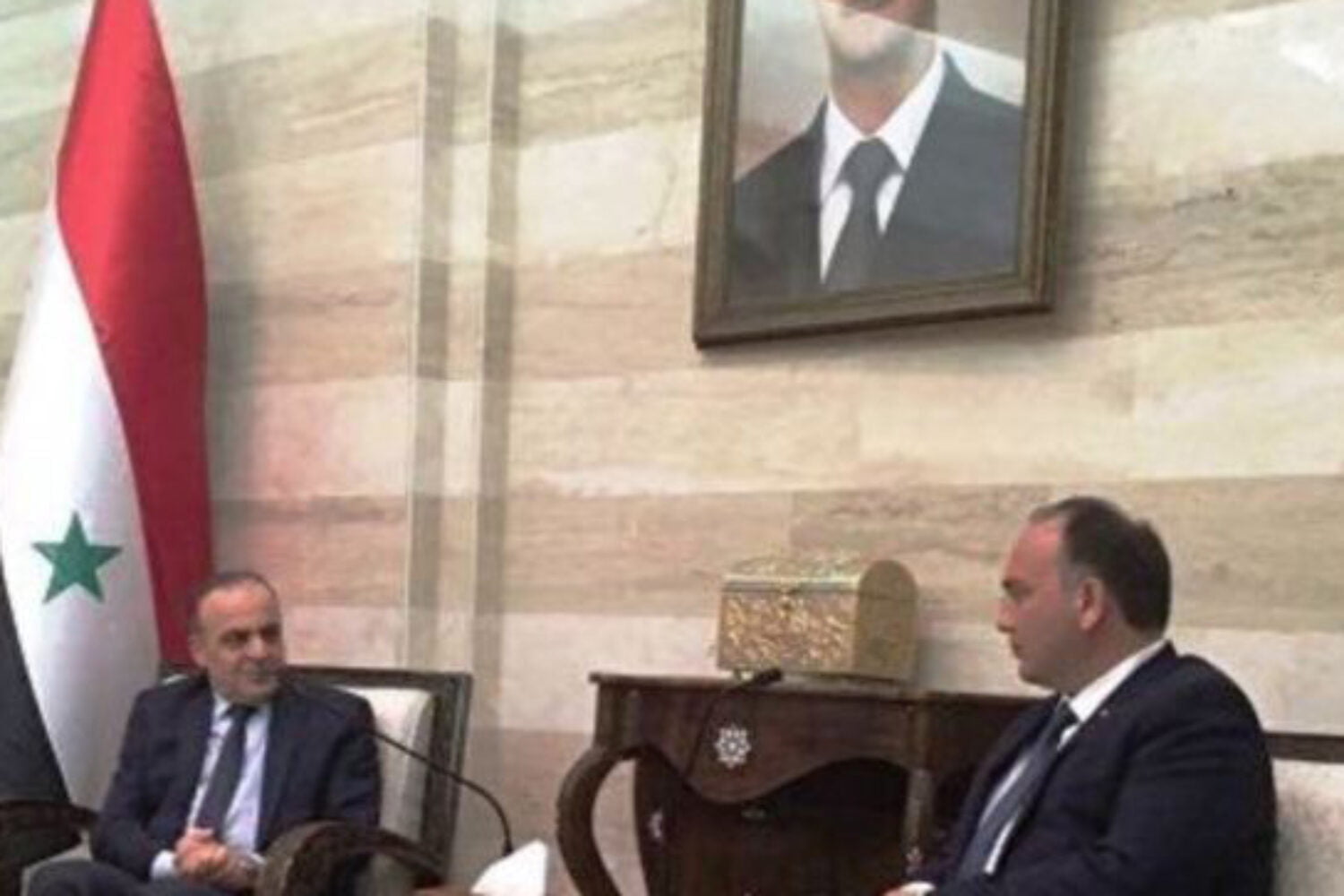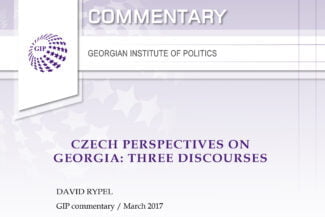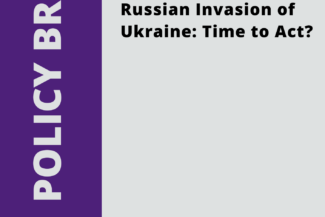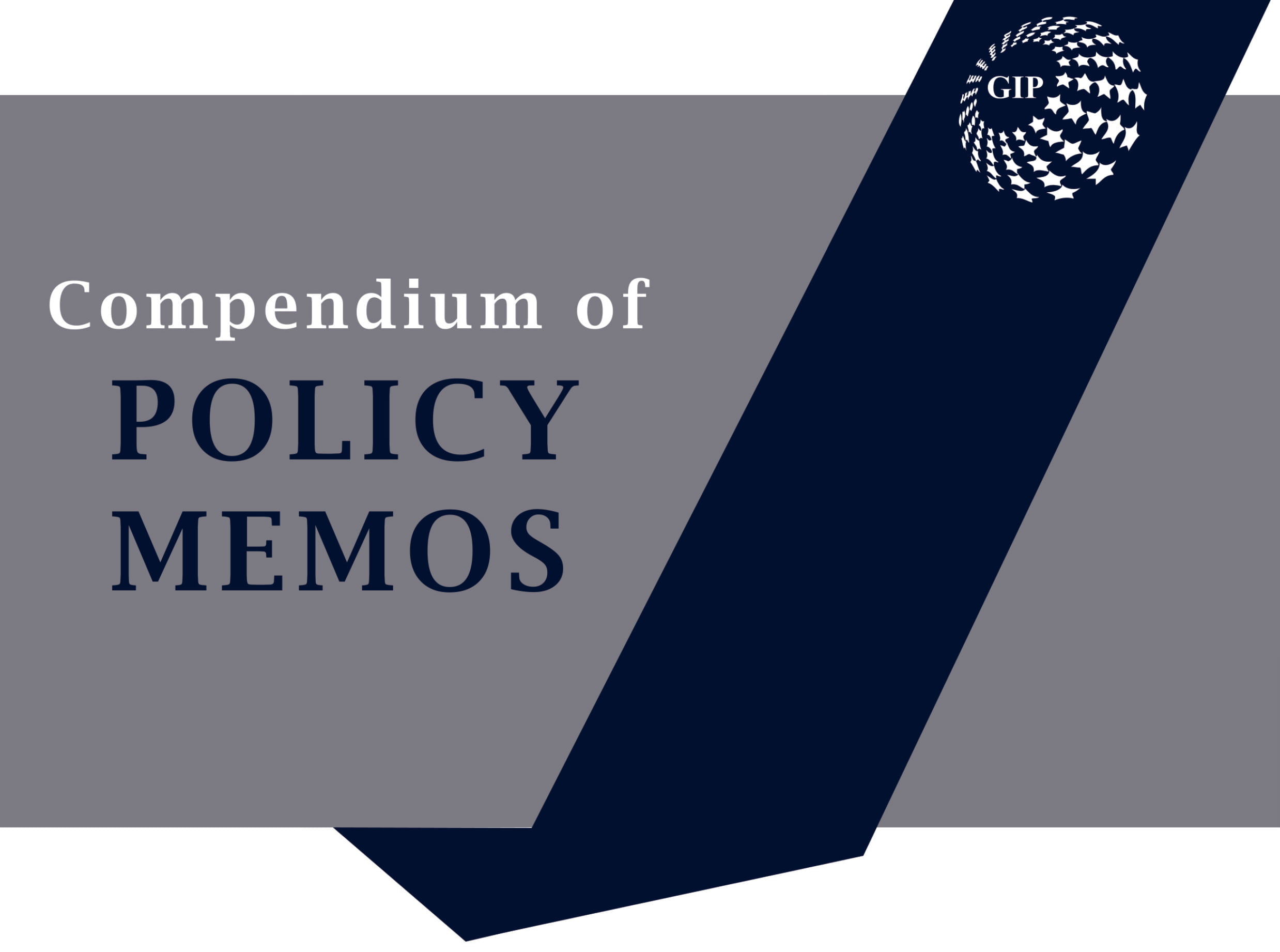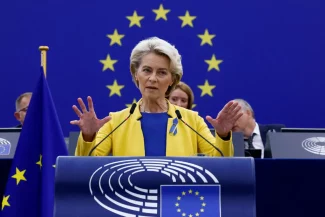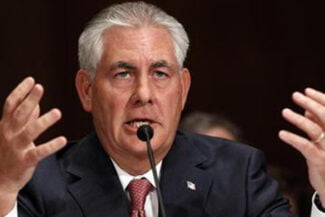
Author
Mariam Grigalashvili
Mariam Grigalashvili
On September 27, a Syrian delegation paid a so-called “official” visit to Russian-occupied Abkhazia. The visit was preceded by a visit to Damascus by the de-facto authorities of Abkhazia. High-level officials attended both meetings. The Ministry of Foreign Affairs of Georgia condemned the Syrian visit to Sokhumi and labeled it as a continuation of provocative actions by Russia and its occupation regimes.
These visits raise a key question: If the Syrian government considers Abkhazia to be an independence republic, then why is it abstaining from officially recognizing the occupied territory as independent?
Back in 2015, the Minister of Foreign Affairs of de-facto Abkhazia expressed hope that Syria would officially recognize Abkhazia as independent. However, despite intensified relations, Damascus is not in a rush to join those client states of Russia which have already recognized the separatist regime. Theoretically, the Syrian government should not be worrying about its already damaged international image. Whether or not Syria’s government faces more accusations for recognizing the independence of Abkhazia, the general political environment around Syria will not change.
Paying careful consideration to the existing context, these are the possible reasons behind Syria’s abstention from recognizing Abkhazia as independent.
- The Kremlin’s controversial politics. Despite declared position, Syria’s recognition of the independence of Abkhazia might not be favorable for Russia. On the one hand, the current Syrian regime recognizing Abkhazia as independent will neither grant legitimacy to Moscow nor Sokhumi. On the other hand, Russia’s policy towards the region is focused on maintaining the status quo rather than supporting Abkhazia’s independence. For this reason, Russia does not appear to be pressuring Syria to recognize the independence of Abkhazia.
- If Russia does not want to actively promote Abkhazian independence, then what is implied by its ally’s visit to Sokhumi? Russia benefits from occasionally raising the Abkhazian issue at the international level. On the one hand, it assures Abkhazia that Moscow is concerned about its questionable status. On the other hand, with similar impulses, Russia is able to alarm Georgian citizens, something which is expressed by discontent towards the effectiveness of the government. It puts internal pressure on Georgia’s government to change its foreign policy.
- With the recognition of Abkhazia’s independence, the issue of Kurds living in Syria might be put forward. if Damascus opens and continues negotiations with the de-facto governments and recognizes the occupied territories as independent, it will likely cause damage through a boomerang effect. In the context of the Kurdish referendum in Iraq, no one can guarantee that the same will not happen in Syria, which already suffers from instability and problems with legitimacy. By recognizing the independence of Abkhazia, the Syrian government will lose all its legitimate instruments to counter moves towards independence on Syrian territory. As stated by the leader of Syrian Kurds after the referendum in Iraq, Syrian Kurds want a federal union with Syria in the context of wider autonomy.
- Georgians should not be alarmed by the state of affairs. Eventually, a number of noteworthy facts need to be considered in this process: (1) Russia is not enthusiastically trying to pressure Syria into recognizing Abkhazia as independent; (2) the Syrian government has started referring to Abkhazia as a republic more frequently, however, Sokhumi has been waiting for recognition for two years without any success; and (3) considering its existing isolation, Syria naturally needs any ally, even separatist Abkhazia. However, at least in the context of the civil war in Syria, that does not imply Syria’s unconditional consent to recognizing Abkhazia as independent, a policy which is largely determined by internal problems.
Considering the above, it is unlikely that in the short-term Damascus recognizes Abkhazia as independence. However, that should not allow Georgian diplomacy to lose the focus of this direction. On the contrary – more active engagement is necessary with Georgia’s strategic allies and other Arab states to strengthen the non-recognition politics on the one hand and to avoid any unpleasant surprises on the other.
*Mariam Grigalashvili – GIP Policy Analyst


